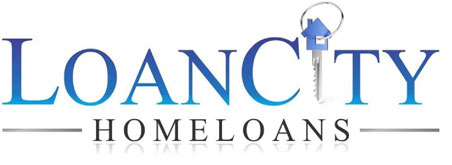How to prepare for mortgage before you apply for a mortgage loan
How to prepare for mortgage – is essential for you to know before you apply for mortgage loan. Whether you are purchasing a home or refinancing, preparing ahead of time is key. Planning ahead will lead to lower costs, a better interest rate and a smoother loan process.
 Qualifying for a mortgage has become more difficult over recent years. With stricter underwriting standards after the credit crisis, mortgages now require full documentation of income, assets, likelihood of continued and stable employment, higher credit scores, established credit history and lower debt to income requirements. A skilled loan officer is a valuable resource in walking you through the process and explaining the importance of preparing for a mortgage. A few simple moves can result in a savings of thousands of dollars over the life of a 30 year mortgage
Qualifying for a mortgage has become more difficult over recent years. With stricter underwriting standards after the credit crisis, mortgages now require full documentation of income, assets, likelihood of continued and stable employment, higher credit scores, established credit history and lower debt to income requirements. A skilled loan officer is a valuable resource in walking you through the process and explaining the importance of preparing for a mortgage. A few simple moves can result in a savings of thousands of dollars over the life of a 30 year mortgage
Here are a few steps to help you prepare and items you need to be aware of:
View Your Credit Report & Scores
The first step in your preparation is reviewing your credit report and credit scores. Reviewing your credit report ahead of time allows you to improve your credit scores and allots you time needed to make repairs to your credit if necessary. Review your credit report at least 30 days before looking to obtain a mortgage. Borrowers with a mid credit score of 740 or higher typically are offered the best interest rate and terms available. If your score is under 740, it’s time to look for ways to improve your score.
Simple ways to improve your credit scores:
Pay down or pay off credit cards. How your utilizing your credit cards plays a big role in your credit score. Historically, balances you keep on credit cards accounts for 30% of your credit score. Borrowers that keep low balances on their credit cards will have better credit scores than someone that keeps a balance close to the cards credit limit. Carrying high balances will hurt your scores, regardless of whether you pay your cards off in full each month. Ideally you don’t want to exceed 33% of the credit cards limit if you’re looking for the highest credit score possible.
The first step in your preparation is reviewing your credit report and credit scores. Reviewing your credit report ahead of time allows you to improve your credit scores and allots you time needed to make repairs to your credit if necessary. Review your credit report at least 30 days before looking to obtain a mortgage. Borrowers with a mid credit score of 740 or higher typically are offered the best interest rate and terms available. If your score is under 740, it’s time to look for ways to improve your score.
Dispute inaccurate information reporting on your credit report – Disputes take 30 days to complete so it’s important you start this at least 30 days before applying for a mortgage. It is not uncommon to have a collection or a late payment reporting on your credit report in error. There is a website created to obtain a free credit report which also allows you to dispute inaccurate information. A single late payment can drop a credit score 100 points. Visit www.annualcreditreport.com to obtain a free credit report.
Do’s & Don’t
Don’t close major credit card accounts – Length of credit history plays a major role in a credit score. Eliminating credit cards to appear to be a lower risk to the Lender is a big misconception. In fact, it will have the opposite effect. Closing accounts will eliminate your established credit history and lower your credit score as a result. Individuals with high credit scores typically hold at least three credit cards (with low balances) which they have had open for over seven years each. Rather than closing accounts it is best to work toward paying them off, and then let the accounts remain open with a small amount of activity that is paid off each month.
Avoid any major purchases before closing your mortgage loan – Major purchases (i.e.: buying a car) suggests more risk for the homebuyer and therefore more risk to the lender. This can also reduce the loan amount your qualify for due to the increase in your debts.
Limit credit inquires – The impact of credit inquires will vary since each person’s credit history is unique. In general, credit inquiries have a two to five point impact on a credit score. A few points can make a difference in the rate and terms your being offered on your mortgage. However, if you are shopping for a mortgage and there were multiple inquiries by mortgage companies within thirty days of each other, only the first inquiry will affect your score. Mortgage Lenders require a written explanation for all credit inquiries in the last 120 days. They want to ensure that no new debts were obtained that are not reporting on your credit report as a result of the credit inquiry.
Types of debts – Not all debts have the same impact on your credit scores. There are two types of credit; installment and revolving debt. An example of an installment loan would be car loans, student loans and mortgages. Installment loans carry the same payment each month until paid off. Once an installment loan is paid off it stops reporting on your credit report. Revolving debt such as credit cards continue to report on your credit report until closed, even if there isn’t a balance. Using revolving debts and keeping high balances will have a negative impact on your score, where as taking out a new mortgage will not. Just like an installment loan will not increase your score dramatically, paying one off early will not either. This is one of the scoring myths that may be hard to believe.
Figure out your budget and stick to it – Determine, how much of a mortgage payment your budget can handle. You often times will qualify for a larger mortgage than you are comfortable with. Understand that with homeownership comes unforeseen expenses. Homes age and have to be maintained. Bills such as water and garbage, property taxes, and home owners insurance are now your responsibility. When renting these costs are typically covered by the land lord. Check out our rates and get a free and accurate quote.
Prepare yourself for the down payment & closing costs – There are loan programs available that require as little as 1/2% down. However, when putting less than 20% down, be prepared to pay mortgage insurance. Ask your loan officer about the various loan programs if putting 20% down is not in your budget. Recent changes in FHA loans now require mortgage insurance to remain for the life of the loan. Educate yourself on the options.
With rising home pricings and low inventory it now has become a seller’s market. Previously, it was common for a seller to help buyers with closing cost. Not long ago, it was common for the seller to provide up to a 3% or more credit for closing costs. These days are gone and it is up to the Buyer in most situations to pay all their own closing costs.
With advanced preparation and good credit management you will set yourself up to receive the best mortgage terms available.
Preparing for mortgage before you apply, reduce the risk of losing money due to ill preparation and lack of mortgage knowledge. Preparing well also help you to find the right type of home mortgage loan. Before you apply for mortgage loan, plan ahead, prepare well and learn how to prepare for mortgage.


 Twitter
Twitter Email
Email Facebook
Facebook Linkedin
Linkedin Google +
Google +